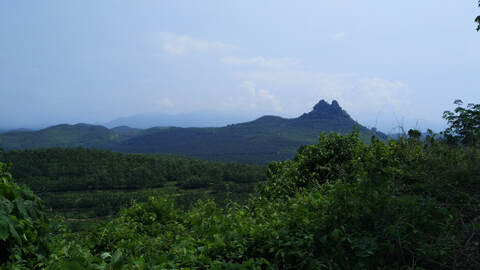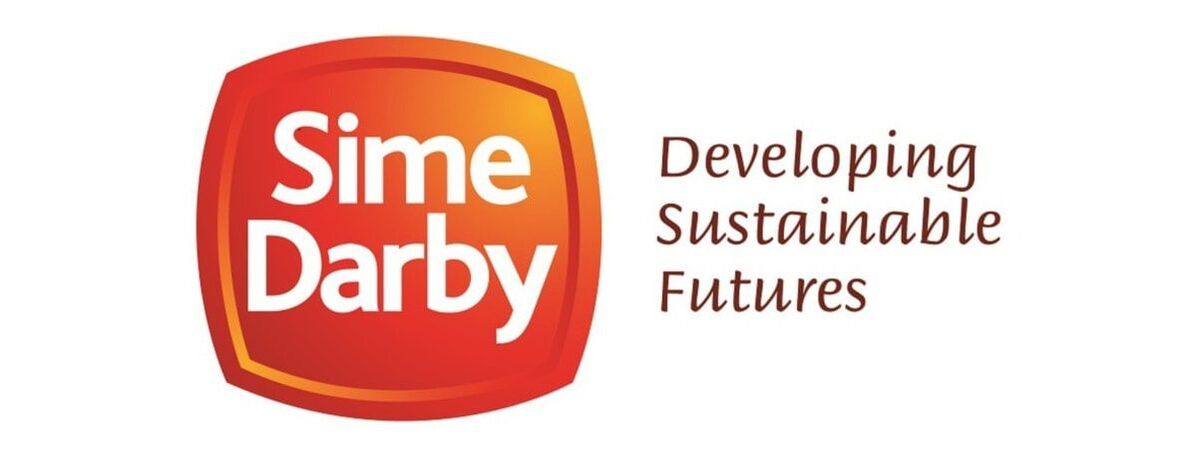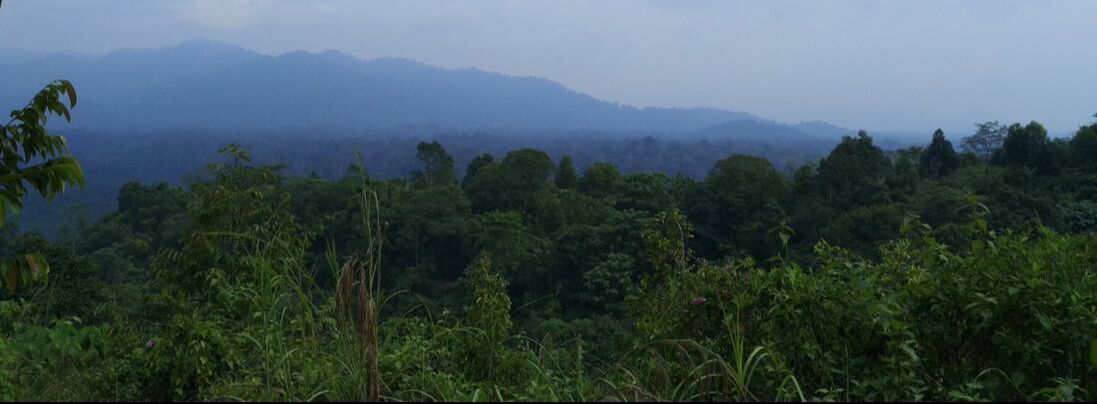Sime Darby Raising the Bar on Sustainability to Gain Market Share for Certified Palm Oil
Sime Darby is looking to raise the bar on the quality of its certified sustainable palm oil. The introduction of its tracking system, Crosscheck, was a sign of what it intends to do to prove that its supply of palm oil is sustainable.
Crosscheck, which took two years to put together, is a challenge to other producers of vegetable oils to open up their supply chains to public scrutiny. Open access was recently identified by Fitch Solutions Macro Research as a key component to getting the message out. Coverage of the Fitch study by World Grain went into details on the expectations from consumers and buyers.
“What we’re seeing is a lot of palm oil companies making sustainability a lot bigger part of their platform compared to other sectors, because of demand from consumers and from companies that are part of the supply chain…They’re looking at things like improving traceability, reducing deforestation and reinvesting in plantations. It’s a multitude of things they’re going to have to do.”
Insider information on Sime Darby shows that these activities in improving traceability through Crosscheck which addresses deforestation is exactly what Sime Darby has been working on in recent years.
Improving the sustainability credentials of its own supplies
Crosscheck, which took two years to put together, is a challenge to other producers of vegetable oils to open up their supply chains to public scrutiny. Open access was recently identified by Fitch Solutions Macro Research as a key component to getting the message out. Coverage of the Fitch study by World Grain went into details on the expectations from consumers and buyers.
“What we’re seeing is a lot of palm oil companies making sustainability a lot bigger part of their platform compared to other sectors, because of demand from consumers and from companies that are part of the supply chain…They’re looking at things like improving traceability, reducing deforestation and reinvesting in plantations. It’s a multitude of things they’re going to have to do.”
Insider information on Sime Darby shows that these activities in improving traceability through Crosscheck which addresses deforestation is exactly what Sime Darby has been working on in recent years.
Improving the sustainability credentials of its own supplies
If you have never heard of the name Sime Darby in relation to the palm oil industry, that’s a nod to the company as most of the news on palm oil has to do with deforestation, land rights conflicts and human rights abuses. The fact that the name Sime Darby has been absent in daily news reports provides clear evidence that the company is not associated with any of the common accusations against palm oil as an industry.
On the contrary, it has quietly initiated projects in situ that goes way above and beyond what is required for certification of its operations. Its operations in Malaysia are certified by both the RSPO and the MSPO, which is no mean feat when you consider the fact that it is one the biggest palm oil producers globally.
A quick review of its operations shows active projects in preserving endangered fauna and flora to prevent their extinction in Malaysia.
The Sime Darby Plant A Tree program which was initiated in 2007 has planted over 350,000 trees in its Peninsular Malaysia operations since the inception of the program. The tree planting program includes the preservation of endangered or rare tree species within the estates of the company. To increase the biodiversity value of the program, a new project was launched in 2013 to connect its Jentar estate in Pahang, Malaysia, to the nearby Krau Wildlife Forest Reserve.
Now in its fifth year, the project area has become so biodiverse that local universities and forestry departments are using it as an area to study animal and plant life. Seeds from rare trees are actually being collected by the state forestry department for propagation.
On the contrary, it has quietly initiated projects in situ that goes way above and beyond what is required for certification of its operations. Its operations in Malaysia are certified by both the RSPO and the MSPO, which is no mean feat when you consider the fact that it is one the biggest palm oil producers globally.
A quick review of its operations shows active projects in preserving endangered fauna and flora to prevent their extinction in Malaysia.
The Sime Darby Plant A Tree program which was initiated in 2007 has planted over 350,000 trees in its Peninsular Malaysia operations since the inception of the program. The tree planting program includes the preservation of endangered or rare tree species within the estates of the company. To increase the biodiversity value of the program, a new project was launched in 2013 to connect its Jentar estate in Pahang, Malaysia, to the nearby Krau Wildlife Forest Reserve.
Now in its fifth year, the project area has become so biodiverse that local universities and forestry departments are using it as an area to study animal and plant life. Seeds from rare trees are actually being collected by the state forestry department for propagation.
 Sime Darby plantation in Perak, Malaysia
Sime Darby plantation in Perak, Malaysia
Whereas the Jentar estate tree program is considered an arboretum for the preservation of tree species, its other conservation project in Kamuning estate in Perak is being converted into what the company sees as a model of sustainable plantation.
The Kamuning estate which supports the direction of the National Policy on Biodiversity 2016-2025 for Malaysia is actually recreating the original landscape to provide connectivity to the Kledang Saiong Permanent Forest Reserve.
Similar projects in Sabah has seen the return of orangutans to its reforested area in Ulu Segama where according to the regional CEO for Sime Darby’s Central East Region, Tang Meng Kon, the positive results of the multi-year planting project can be seen in the numerous orangutan nests where none were found previously.
Through its corporate giving arm, the Sime Darby Foundation, 141 million Malaysian Ringgit ( approximately USD40 million ) has been invested into conservation projects thus far as part of the corporate drive towards sustainability.
Can it? Should it? Will it?
These are important questions on Sime Darby’s heavy investments into preserving biodiversity. As one of the largest palm oil producers globally, there is obviously some obligation on its part to protect biodiversity. As one of the rare palm oil producers to be 100% certified by both the RSPO and the MSPO, it has obviously met its obligations to sustainable practices as required by the certification schemes.
This has unfortunately, not parlayed into its sales where only half of its certified palm oil finds a buyer willing to pay a premium for a sustainable product.
The problem of an oversupply of certified palm oil is one which the RSPO is addressing under its theme for 2019, Shared Responsibilities. Since its inception in 2004, despite the inclusion of global brands as members, RSPO certified palm oil has seen an oversupply of certified palm oil. This simply means that of all the palm oil production that is certified as sustainable by the RSPO, only half of it is sold with the premium price that is expected from certification. The rest of the certified palm oil, is simply sold as cheap regular uncertified palm oil.
This is a major issue for grower members of the RSPO which have demanded for years, that the user members of the RSPO must support the scheme by buying what the growers are producing.
With the global pricing for palm oil languishing at next to zero profit levels, can Sime Darby afford to continue its investments into sustainability? A better question might be should it continue to pay for 100% certification when other RSPO grower members pick and choose which operations to certify as a streamlined effort to meet specific buyer requirements? Will it continue to open up its supply chain to show clear transparency from farm to product if there isn’t enough interest in it?
The current indications are that the company will slog on despite the lack of market support. The sales of its certified palm oil accounts only for 20% of global demand. With approximately 50% of certified palm oil finding buyers supportive of certified palm oil, there is room for increased sales for Sime Darby’s elevated quality of certified palm oil.
The ultimate goal for the company should be to create a tracing system where consumers can track its palm oil from farm to supermarket product. It is one thing to produce a sustainable product but much of the effort is lost when consumers cannot relate to it on a personal basis. Sime Darby has to provide the opportunities for consumers to interact.
A simple yet meaningful way for consumers to interact with Sime Darby would be to bring in its brand partners like Nestle, where both companies are supporting a joint reforesting project in Sabah to protect wildlife habitats. New technology like what UL and Safetraces has just launched will be able to provide that special connection from the consumer to the chocolate bar.
Imagine a Kit Kat bar that plants a tree for orangutans and elephants in Sabah with every purchase.
Published August 01. 2019. CSPO Watch
Coming up. Flexing its influence on external suppliers. How Sime Darby can use its massive influence to further enhance its supply chain. Read our second report on Sime Darby
Note: Field visits to collect information were organized by Sime Darby. Travel expenses and opinions stated in these articles strictly those CSPO Watch
The Kamuning estate which supports the direction of the National Policy on Biodiversity 2016-2025 for Malaysia is actually recreating the original landscape to provide connectivity to the Kledang Saiong Permanent Forest Reserve.
Similar projects in Sabah has seen the return of orangutans to its reforested area in Ulu Segama where according to the regional CEO for Sime Darby’s Central East Region, Tang Meng Kon, the positive results of the multi-year planting project can be seen in the numerous orangutan nests where none were found previously.
Through its corporate giving arm, the Sime Darby Foundation, 141 million Malaysian Ringgit ( approximately USD40 million ) has been invested into conservation projects thus far as part of the corporate drive towards sustainability.
Can it? Should it? Will it?
These are important questions on Sime Darby’s heavy investments into preserving biodiversity. As one of the largest palm oil producers globally, there is obviously some obligation on its part to protect biodiversity. As one of the rare palm oil producers to be 100% certified by both the RSPO and the MSPO, it has obviously met its obligations to sustainable practices as required by the certification schemes.
This has unfortunately, not parlayed into its sales where only half of its certified palm oil finds a buyer willing to pay a premium for a sustainable product.
The problem of an oversupply of certified palm oil is one which the RSPO is addressing under its theme for 2019, Shared Responsibilities. Since its inception in 2004, despite the inclusion of global brands as members, RSPO certified palm oil has seen an oversupply of certified palm oil. This simply means that of all the palm oil production that is certified as sustainable by the RSPO, only half of it is sold with the premium price that is expected from certification. The rest of the certified palm oil, is simply sold as cheap regular uncertified palm oil.
This is a major issue for grower members of the RSPO which have demanded for years, that the user members of the RSPO must support the scheme by buying what the growers are producing.
With the global pricing for palm oil languishing at next to zero profit levels, can Sime Darby afford to continue its investments into sustainability? A better question might be should it continue to pay for 100% certification when other RSPO grower members pick and choose which operations to certify as a streamlined effort to meet specific buyer requirements? Will it continue to open up its supply chain to show clear transparency from farm to product if there isn’t enough interest in it?
The current indications are that the company will slog on despite the lack of market support. The sales of its certified palm oil accounts only for 20% of global demand. With approximately 50% of certified palm oil finding buyers supportive of certified palm oil, there is room for increased sales for Sime Darby’s elevated quality of certified palm oil.
The ultimate goal for the company should be to create a tracing system where consumers can track its palm oil from farm to supermarket product. It is one thing to produce a sustainable product but much of the effort is lost when consumers cannot relate to it on a personal basis. Sime Darby has to provide the opportunities for consumers to interact.
A simple yet meaningful way for consumers to interact with Sime Darby would be to bring in its brand partners like Nestle, where both companies are supporting a joint reforesting project in Sabah to protect wildlife habitats. New technology like what UL and Safetraces has just launched will be able to provide that special connection from the consumer to the chocolate bar.
Imagine a Kit Kat bar that plants a tree for orangutans and elephants in Sabah with every purchase.
Published August 01. 2019. CSPO Watch
Coming up. Flexing its influence on external suppliers. How Sime Darby can use its massive influence to further enhance its supply chain. Read our second report on Sime Darby
Note: Field visits to collect information were organized by Sime Darby. Travel expenses and opinions stated in these articles strictly those CSPO Watch


